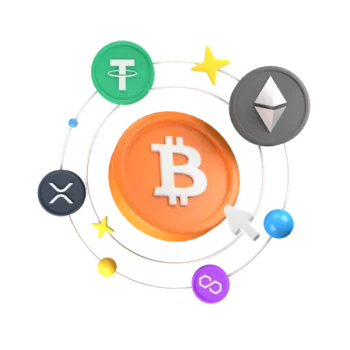Inflation
Inflation has been a growing concern across the globe, especially in 2024. As prices rise, consumers feel the pressure, businesses adjust, and governments respond with various fiscal and monetary policies.
Inflation is simply the rate at which the general level of prices for goods and services rises, leading to a decrease in purchasing power. This economic phenomenon has been particularly pronounced due to several interconnected factors. Understanding these causes is essential for making informed decisions whether you are an individual investor or a business owner.
What Causes Inflation? Key Factors Driving Inflation
Rising Energy Prices
Energy costs have seen significant increases, primarily due to supply chain disruptions, geopolitical instability, and shifts in energy production methods. This surge in energy prices leads to higher production costs for goods and services, which, in turn, increases the prices that consumers pay.
Inflation linked to rising energy prices often leads to higher transportation and heating costs, which affect all industries. As a result, many businesses raise their prices to cover the increased operational costs, triggering a ripple effect throughout the economy.
Supply Chain Disruptions
The COVID-19 pandemic has created long-lasting supply chain disruptions, and though recovery efforts are ongoing, the global supply chain has yet to return to its pre-pandemic efficiency. When goods are harder to obtain, the scarcity drives prices up.
Supply chain issues have affected everything from raw materials to finished products, especially in sectors such as electronics, construction, and automotive. As manufacturers struggle to meet demand, consumers face higher prices for everything from new cars to household goods.
Increased Demand in a Post-Pandemic Economy
Following the COVID-19 pandemic, economies are gradually reopening, and demand for goods and services is returning to pre-pandemic levels. This sudden surge in demand, combined with supply shortages, contributes to inflation.
Consumer spending has bounced back, with demand outpacing supply in many industries. As businesses struggle to keep up, the law of supply and demand dictates that prices rise.
Wage Inflation and Labor Shortages
Labor shortages have been another contributor to inflation. As businesses across many industries are looking to fill open positions, wages are increasing. While this is good for workers, higher wages can lead to increased costs for businesses, who often pass those costs on to consumers.
Wage inflation can be particularly noticeable in industries like healthcare, logistics, and food services, where the competition for labor has been fierce. As companies pay more to attract and retain employees, the costs get passed on to customers in the form of higher prices.
Monetary Policy and Interest Rates
Governments and central banks control monetary policies, which can have a significant impact on inflation. Many countries have adjusted their interest rates in response to rising inflation. Higher interest rates make borrowing more expensive, which reduces consumer spending and business investment, but it also affects inflationary pressure.
Central banks must carefully balance interest rates to ensure that inflation doesn’t get out of control. However, low interest rates, which were used to stimulate economies during recessions, can exacerbate inflation if maintained for too long.
The Effects of Inflation on the Economy
Impact on Consumers
One of the most immediate effects of inflation is the rising cost of living. When prices increase, consumers need more money to purchase the same goods and services. For example, food, housing, and energy costs may rise, making it harder for individuals to maintain their standard of living.
For lower-income households, inflation can be particularly burdensome, as they spend a higher percentage of their income on basic needs. This can lead to increased financial stress and a lower quality of life.
Impact on Businesses
Businesses also feel the effects of inflation. As costs rise for raw materials, wages, and operational expenses, companies must decide whether to absorb those costs or pass them on to consumers. In many cases, businesses raise their prices, contributing to further inflation.
In addition, inflation can lead to uncertainty in the economy. When prices are volatile, businesses may delay investment or expansion plans. This can stunt economic growth in the long term.
Impact on Investment and Savings
Inflation erodes the purchasing power of money, which means that the value of savings decreases over time. Investors may also see their portfolios lose value in real terms, even if nominal returns are positive. For this reason, many investors look for inflation-hedging assets like real estate, commodities, and inflation-protected bonds.
Global Economic Implications
Inflation doesn’t just affect one country or region; it has global implications. Countries with high inflation may see their currencies weaken against others, which can lead to higher import prices. This, in turn, can affect international trade and create further economic challenges.
How to Protect Against Inflation: Practical Tips for Consumers
- Invest in Inflation-Hedging Assets: Diversifying your portfolio with assets like real estate, gold, or Treasury Inflation-Protected Securities (TIPS) can help protect against inflation.
- Increase Savings: Consider saving more during periods of low inflation to build a cushion for when prices increase.
- Control Discretionary Spending: Cutting back on non-essential purchases can help mitigate the impact of rising costs.
- Consider Fixed-Rate Loans: If you have debt, switching to a fixed-rate loan can help lock in interest rates before they rise.
Inflation is being driven by a combination of rising energy costs, supply chain disruptions, increased demand, labor shortages, and monetary policy decisions. Understanding these factors is crucial for both consumers and businesses to navigate the current economic landscape. By staying informed and taking steps to protect your finances, you can minimize the effects of inflation.








